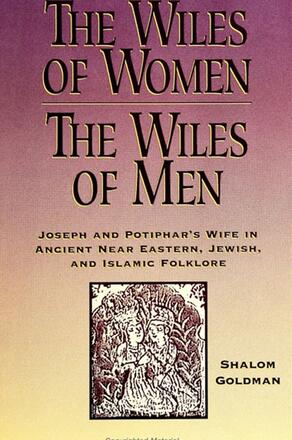
The Wiles of Women/The Wiles of Men
Joseph and Potiphar's Wife in Ancient Near Eastern, Jewish, and Islamic Folklore
Alternative formats available from:
Focusing on gender issues, this book compares and contrasts the treatment of the Potiphar's Wife motif--in which a woman makes vain overtures to a man and then accuses him of attempting to force himself upon her--in ancient Near Eastern, Jewish, and Islamic folklore.
Description
One of the world's oldest recorded folktales tells the story of a handsome young man and the older woman in whose house he resides. Overcome by her feelings for him, the woman attempts to seduce him. When he turns her down she is enraged, and to her husband she accuses the young man of attacking her. The husband, seemingly convinced of his wife's innocence, has the young man punished. But it is precisely that punishment that leads to the hero's vindication and eventual rise to power and prominence.
In the West we know this tale--classified in folklore as the Potiphar's Wife motif--from its vivid narration in the Hebrew Bible. But as Shalom Goldman demonstrates in this book, the Bible's is only one telling of a story that appears in the scriptures and folklore of many peoples and cultures, in many different eras, including ancient Egypt, classical Greece, and ancient Mesopotamia, as well as post-Biblical Jewish literature, the Qur'an, and Inuit culture. Goldman compares and contrasts the treatment of this motif especially in the literature and lore of the ancient Near East, Biblical Israel, and early Islam, at the same time touching on gender issues--the status of women in Middle Eastern societies and the varying constructions of male-female relationships--and the vexed question of "originality" in the narratives of the monotheistic traditions.
Shalom Goldman is Assistant Professor of Hebrew Studies at Dartmouth College. He is also the author of Hebrew and the Bible in America and coauthored the libretto of the American opera Akhnaten, music by Philip Glass.
Reviews
"This erudite and accessible study of sexual temptation and intrigue overcomes the barriers of time, religious confessions, and academic disciplines to unfold a powerful, universal tale for the modern reader. Shalom Goldman, writing with great knowledge and without pretense or jargon, is able to hold the reader spellbound as he interweaves the complex turns and interpretations of the Joseph story through many cultures and times. Goldman, never in the thrall of any one discipline or school of thought, gives us a truly interdisciplinary understanding of the underlying forces that have made this story one of the most popular tales in world literature." — Gordon D. Newby, Emory University
"Goldman brings together in very accessible form a lot of material that often remains walled off and hidden from readers." — Journal of Biblical Literature